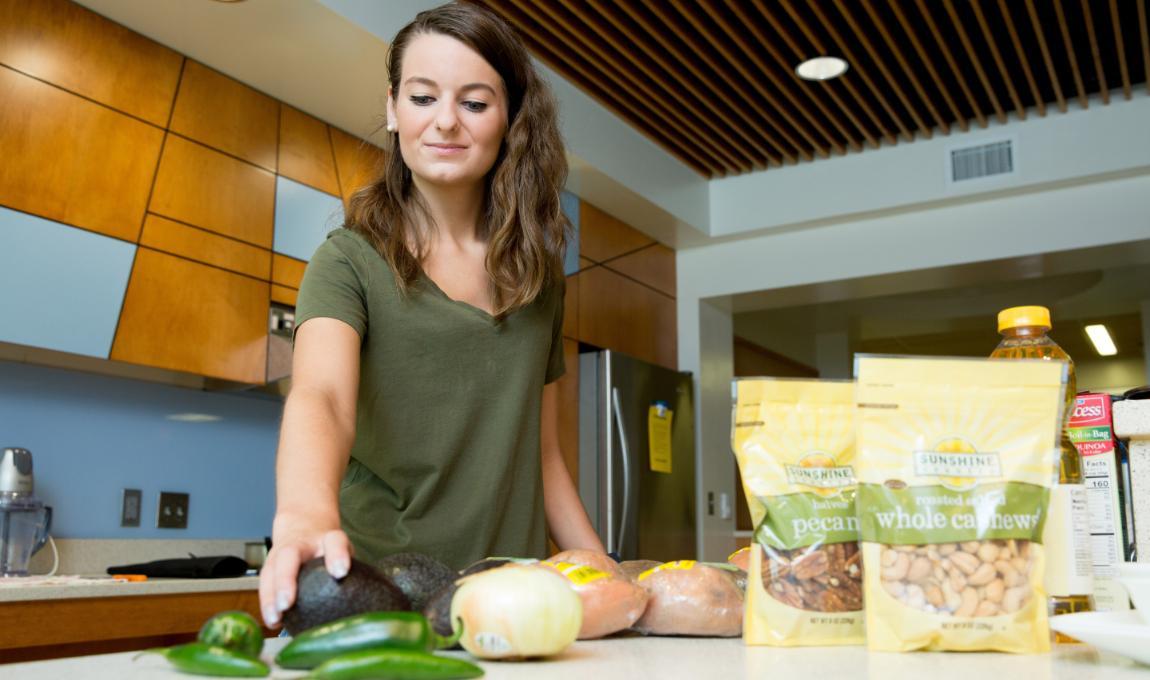

The mashed sweet potatoes that Amanda Duncan ’18 cooked up recently were sweetened with maple syrup and honey—not brown sugar or marshmallows—but tasted every bit as good. This original recipe is part of a summer research project that links a healthy diet with American Indian history and authentic ingredients.
Duncan, a history major, is developing a set of “throwback” recipes using ingredients native to North and South America that predate the arrival of Europeans. In addition to providing a glimpse into eating habits in the 15th century and earlier, the recipes could encourage healthier diets for Native Americans, who now face a significant health risk from diabetes. The disease was relatively rare among Native Americans until the mid-20th century, possibly because of what they ate before Big Macs and milkshakes came on the scene.
“I’m trying to come up with dishes that are healthy, cost-effective and tasty,” said Duncan, whose recipes will be posted on a public website and whose project also includes research on nutrition and diabetes. “Many of the people on reservations are low-income, and junk food and fast food are cheaper alternatives to healthy eating. It’s easier to run to McDonald’s.”
Duncan is getting ideas from Native American cookbooks, “though some cheat by having butter or margarine. Cows weren’t native; they were brought over by the Europeans.” Finding alternatives to replace these and other European ingredients can be a challenge, she added.
She hopes to come up with 30 recipes. The 10 or so recipes she has developed so far include sweet potato fries with spicy avocado sauce, baked potatoes with homemade indigenous pico de gallo and quinoa stuffed peppers.
In the first of several taste testings, Duncan made pumpkin ice cream and a bowl of quinoa—currently a popular health food— with corn and kidney beans, in addition to mashed sweet potatoes. “All of these are healthy and natural,” said Duncan, who was pleased with the mashed sweet potatoes but not with the pumpkin ice cream.
“I thought that would be the best of the three recipes, but the consistency wasn’t what it should have been,” said Duncan, from Dillwyn, who plans to teach high-school history after graduating. “I was adding maple syrup but couldn’t get it sweet enough, and I didn’t want to add too much.”
The project, part of the Summer Undergraduate Research and Inquiry program, is directed by Dr. Deborah Welch, professor of history. “Not everybody can buy a book, but nearly everyone has a computer and can go to a website. Amanda will have some wonderful recipes,” she said.
